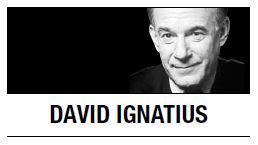 For the past 15 years, the mere mention of the word “China” has brought smiles to the faces of global business executives who gather annually for the World Economic Forum. This year, with Chinese stock and currency markets in turmoil, it brings a chill.
For the past 15 years, the mere mention of the word “China” has brought smiles to the faces of global business executives who gather annually for the World Economic Forum. This year, with Chinese stock and currency markets in turmoil, it brings a chill.
China, so long described as an economic miracle, has become a contagion, setting off negative shocks in markets around the world. A correction in perceptions of China was overdue, but financial markets this month have probably been overreacting on the downside, just as they did on the way up. China‘s fundamentals aren’t really any different from a month ago.
“The issue is not whether markets bounce up and down — of course they do, for China and everyone else — but whether Chinese officials are willing to let the numbers bounce,” explains one top financial official attending the conference. This official argues that if Chinese leaders are wise, they will stick to the free-market reform agenda — and let the markets do the work of pruning excess industrial capacity and overborrowing among state-owned enterprises.
Every time the Chinese seem to be intervening to prop up their currency or ignore bad loans, investors get the jitters. They‘ve gone from irrational exuberance about China to a suspicion that Beijing is cooking the books.
A surprise this year has been how much the perception of a slowdown in China has rocked U.S. financial markets. Only about 25 percent of the U.S. economy is tied to trade, which makes America much less vulnerable than most other countries to a softening in China’s demand for imports. The fundamentals of the U.S. economy seem relatively strong, too, but that hasn‘t prevented a psychological contagion from infecting Wall Street.
Given the worries about the debt bubble in China, it’s reassuring that U.S. and most European banks have cleaned up their balance sheets after the financial panic of 2008. U.S. banks have more capital, less leverage and less risk than they did before our bubble economy burst — thanks in part to reforms enacted by the U.S. Congress. China will probably have to go through a similar, wrenching process of deleveraging, but the end result will be beneficial.
One boost for healthier capital markets in China is the Bilateral Investment Treaty that Beijing and Washington are negotiating. Talks have continued this month even amid the economic turmoil — a sign that China‘s leaders are serious about fully joining the global financial system, bumps and all. “The whole structure of the BIT is about moving government out of the management of the economy, and we’re making progress,” said Michael Froman, the top U.S. trade negotiator, in an interview.
If China were a consumer brand, it might be comparable to Chipotle restaurants, which overnight went from having a reputation for healthy, wholesome food to coping with customer complaints about getting sick. Rebuilding the brand takes time — but most of all, it takes transparency that can reestablish trust.
“You can‘t paper over the issues,” warns David Sable, the global CEO of the advertising firm Young & Rubicam. For the past 25 years, his company has conducted an annual survey that measures the brand reputations of countries, as well as consumer products.
Brand China scores high in power and influence, says Sable, and it’s rated by millennials as the best country in the world to start a career. But it ranks below average among the 60 countries surveyed in terms of its business and political transparency, legal system, corruption and government bureaucracy. Those negatives hurt, now that the China bubble has burst.
Economists are sometimes slow to recognize what advertisers know instinctively, which is that perceptions matter. The great insight of John Maynard Keynes was that while financial markets are shaped by the fundamentals of real economic activity, they are ultimately driven by psychology. When investors feel buoyant, they ignore negative signals. When they get scared, they overlook the positive.
This was a week when the usual Davos upbeat assessments of the global economy were tempered by fears — about China, the Islamic State group and the future of Europe. “We are living in world that in many ways is falling apart,” said Klaus Schwab, the impresario of the World Economic Forum and normally an implacable optimist. But in the next breath, he hailed a “ray of hope” in the movement toward an accord in the intractable, and obscure, negotiations between Greek and Turkish Cyprus.
Hope springs eternal in the mind of Davos Man. But so, too, does fear.
By David Ignatius
David Ignatius‘ email address is davidignatius@washpost.com. — Ed.
(Washington Post Writers Group)

